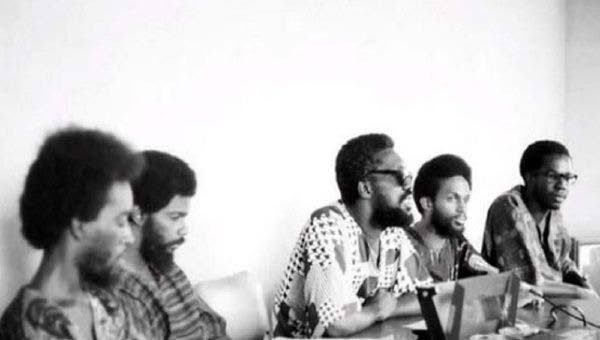1970 revolution is unfinished

THE EDITOR: Best wishes to the stalwarts of 1970.
It was on February 26, 1970, that a group of people, led by the National Joint Action Committee (NJAC), comprising students from the UWI, others from a number of blocks, all united with one purpose to demonstrate international solidarity with West Indian students who had been imprisoned at the Sir George Williams University, now Concordia University, in Montreal, Canada.
The demonstration led by the late Chief Servant Makandal Daaga targeted the Canadian High Commission, Canadian banks and climaxed at the Roman Catholic Cathedral on Independence Square, where there was a spirited dialogue with a number of priests.
The demonstration opened the way for 56 days of demonstrations collectively called the TT Revolution of 1970, or, as some state, the Black Power Revolution.
I am saying, as others have before me, it is an unfinished revolution. The gains that we made since then have been remarkable. But many of them have not been sustained. The reality is that power concedes nothing without a continuous demand, and our task remains daunted by a power structure that has bedevilled us ever since.
Whatever has been left unfinished has been overwhelmed by the State. Let me provide a few examples. Criminality, both white-collar and violent, is now the norm because the State has allowed it to flourish. There is now the great likelihood that we will follow Haiti into hell. Yes, I wrote that!
In addition, there is a great divide between the haves and the have-nots, who are clearly exploited by the elites who do not really care what hurts they are imposing on the nation. There is also the lack of motivation for educational achievement. I remember how the ordinary man and woman had such a thirst for education. I can list the books read by those who wanted to know how the world functioned.
How will we recover so that the revolution may be fulfilled? There are quite a few earnest people in NJAC who are still working to keep the struggle alive, particularly in the arts and in education. Unfortunately, they rely too much on the State which, to me, takes pleasure in placing a stranglehold on existing resources because it would rather not see any progress taking place under the leadership of NJAC.
And so, it is left to concerned private citizens and NJAC itself to jointly forge a better paradigm for this new age. I see it no other way. A new approach has to come to the fore with the recognition that the task is not yet finished.
Long live those who are still in the struggle!
AIYEGORO OME
The SINUHE Centre


Comments
"1970 revolution is unfinished"